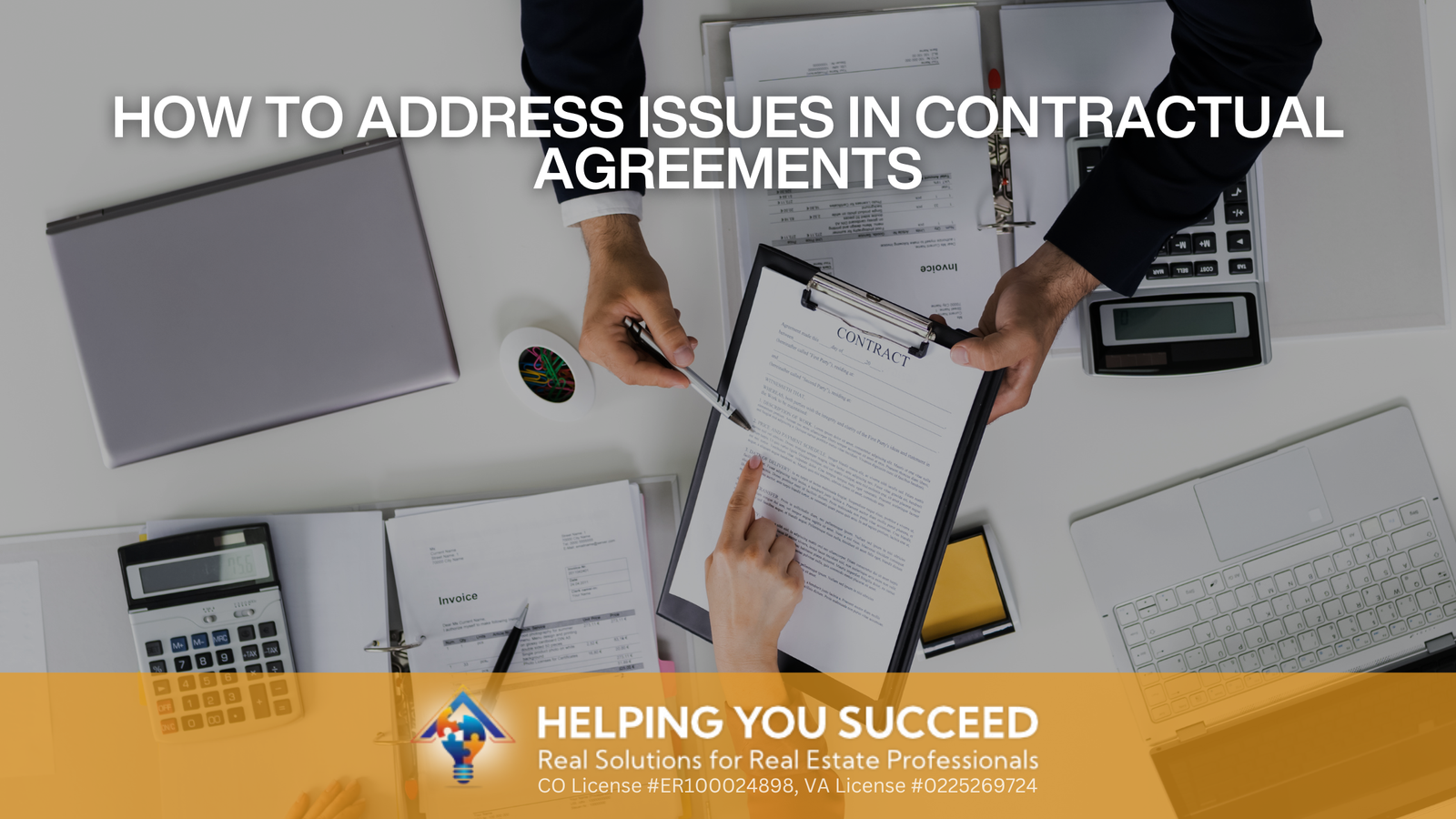Contractual agreements are the backbone of real estate transactions. They lay out the rules and responsibilities to ensure everyone knows what to expect. But what happens when things don’t go as planned? Addressing issues in these agreements can be tricky, leading to delays and stress. Understanding common problems and knowing how to tackle them is crucial to keeping things on track.
Smooth transactions guarantee that buyers and sellers get what they want without any hiccups. When contractual issues arise, they can create a domino effect, handing out headaches to everyone involved. Being aware of potential pitfalls and proactively addressing them helps maintain harmony and complete transactions successfully. It’s not just about being prepared; it’s about making sure that every party feels confident and informed throughout the process.
Common Contractual Issues in Real Estate
Real estate agreements come with their own set of challenges. Some problems seem to pop up more often than others. Here’s a closer look at a few common issues:
– Misunderstood Terms: Many times, terms in a contract aren’t crystal clear to everyone involved. Whether it’s legal jargon or complex clauses, misunderstandings can easily occur. This confusion may cause disputes or delays.
– Missed Deadlines: Real estate transactions are packed with deadlines. Missing one can delay the entire process, frustrating clients and extending the timeline.
– Unexpected Changes: Sometimes, circumstances change after a deal is in motion. Adjusting contracts to reflect new terms or conditions can become a sticking point.
Each of these hurdles has a ripple effect, affecting timelines and relationships. Imagine a situation where a buyer’s understanding of “as is” isn’t aligned with the seller’s interpretation. This misalignment can turn a simple transaction into a battleground of frustrations. By anticipating these issues, parties can take steps to prevent matters from escalating.
Smart planning involves anticipating potential problems and having steps in place to resolve them swiftly. This approach not only eases tensions but also reassures all parties that their concerns will be addressed professionally. Keeping an eye on these typical issues makes it easier to address them head-on when they arise.
How a Real Estate Transaction Manager Can Help
A real estate transaction manager plays a vital role in steering the ship when it comes to handling contractual issues. They act as a bridge between different parties, ensuring that everyone stays on the same page. Their expertise helps in pinpointing and resolving issues before they grow into bigger problems. Imagine having a seasoned guide who knows the landscape by heart. They step in to clarify misunderstood terms and work diligently to keep deadlines.
Transaction managers bring efficiency by streamlining processes and ensuring compliance. They often maintain a checklist to track every aspect of the deal, ensuring that nothing important slips through the cracks. With their eye for detail, they swiftly address any unexpected changes in the agreement, maintaining the integrity of the contract and relationships.
Effective Communication Strategies
For successful real estate transactions, clear communication is key. When everyone understands each step of the process, potential issues are less likely to arise. Here are a few strategies to enhance communication:
– Regular Updates: Keeping all parties updated on the progress helps everyone stay informed and reduces misinformation.
– Clear Language: Avoid confusing jargon. Using simple terms makes complex information accessible to everyone involved.
– Active Listening: Make sure every voice is heard. Encouraging feedback tackles misunderstandings early and builds trust.
By implementing these strategies, the potential for misunderstandings diminishes significantly. Open lines of communication not only prevent problems but also create a collaborative atmosphere, fostering positive relationships with clients and partners.
Steps to Take When Issues Arise
Sometimes, even with the best preparation, issues arise. Knowing how to tackle them ensures that you’re always ready for any curveball. Here’s a step-by-step approach:
1. Identify the Problem: Clearly define what the issue is.
2. Gather Information: Collect all necessary details related to the problem.
3. Consult with Stakeholders: Engage with all involved parties to understand their perspectives.
4. Propose Solutions: Offer practical solutions or compromises that work for everyone.
5. Document Everything: Keep a detailed record of communications and resolutions for future reference.
When issues are met with a structured approach, they become manageable rather than challenging. This proactive strategy builds confidence and reinforces a smooth transaction process.
Ensuring Smooth Transactions
Handling real estate agreements successfully rests largely on being prepared and communicative. Working with a knowledgeable transaction manager is a smart way to avoid pitfalls. By adopting strong strategies and maintaining open communication, any hurdles in the process can be met with confidence and precision.
Ensuring everyone clearly understands and respects the terms involved leads to success. Transactions progress seamlessly, with solutions at the ready for whatever challenges might emerge. Whether you’re a seasoned professional or new to the real estate scene, these insights will empower you to manage contractual agreements with greater ease.
Navigating the complexities of real estate agreements can be challenging, but you don’t have to tackle it alone. Discover how a seasoned real estate transaction manager can streamline your processes and ensure everything runs smoothly. Visit Helping You Succeed to explore our real estate transaction manager services and learn how we can guide you through successful transactions with ease and confidence.




